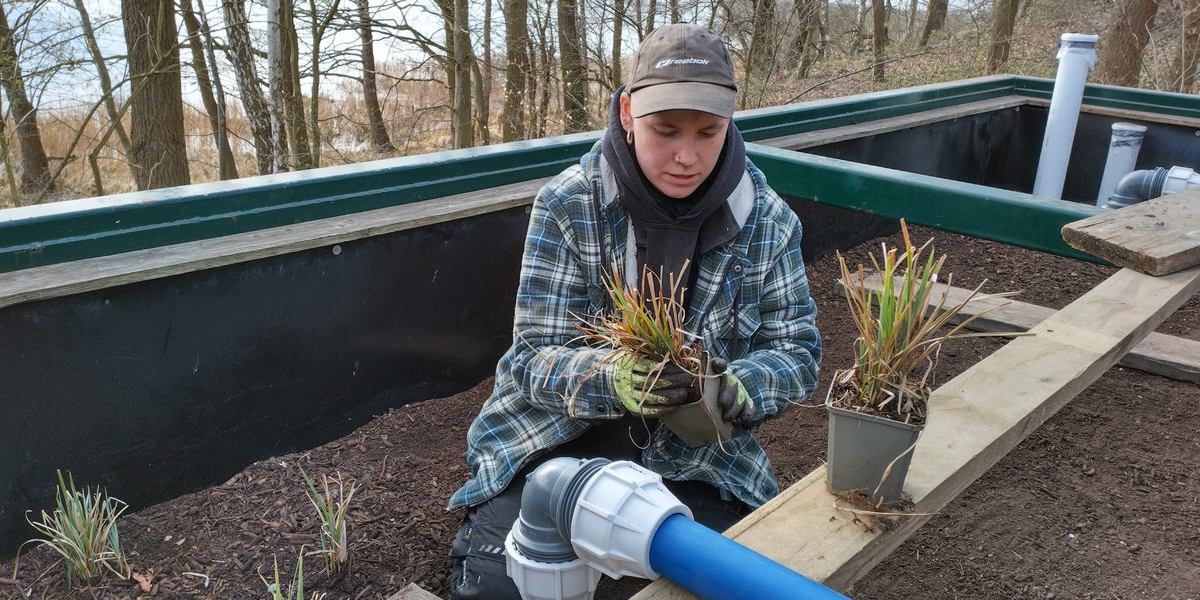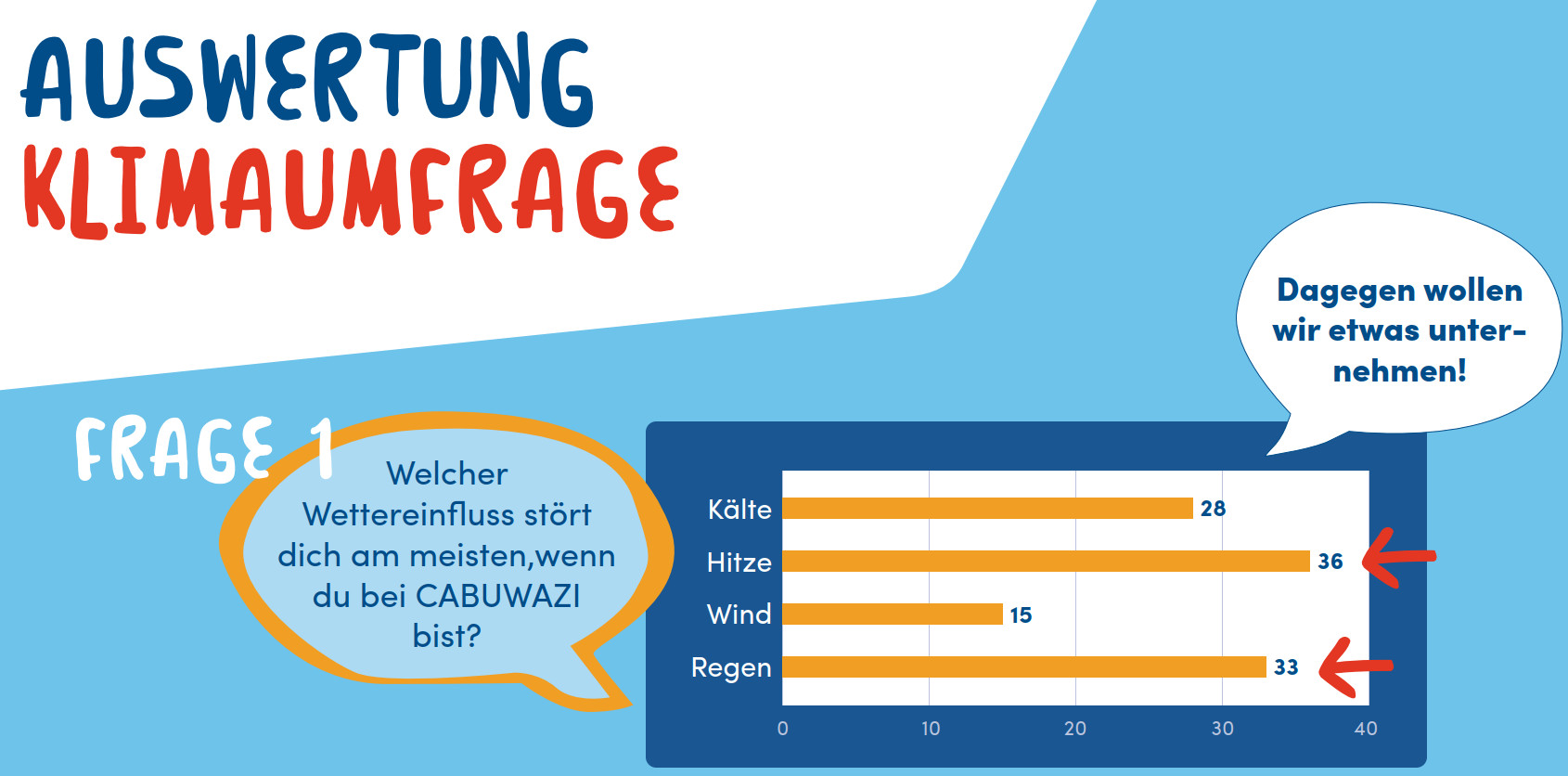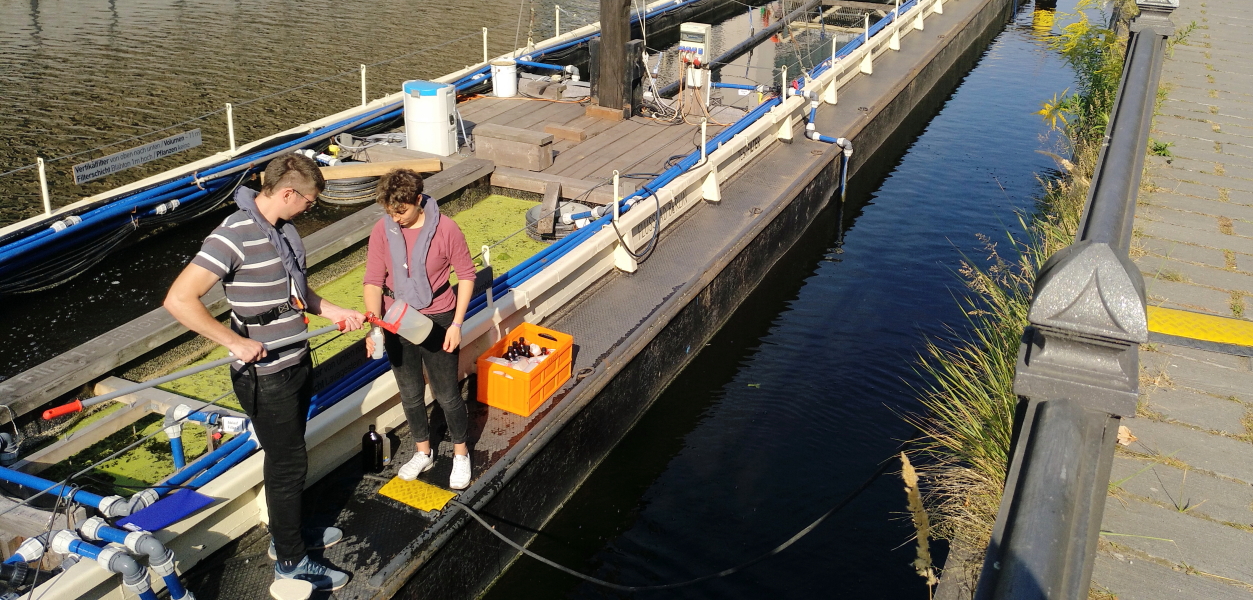

Again - Global climate strike on November 29th
BLUE PLANET Berlin Water Dialogues meets AquaNES
IWA Water Reuse 2019 in Berlin visits Hobrechtsfelde
From 16 to 20 June 2019, the International Water Association IWA hosted its “12th International Conference on Water Reclamation and Reuse” in Berlin: over 400 experts from more than 40 countries, more than 200 lectures, more than 120 posters, exhibitions, workshops and technical tours on the complex of “Overcoming Water Stress through Water Collection and Reuse”. In times of advancing climate change, water management is becoming increasingly important, as we experience in our daily work.
Part of the program was a tour of the former sewage farms in Berlin Hobrechtsfelde called “Hobrechtsfelder Rieselfelder”. AKUT has organized that tour.
In the information centre “Gut Hobrechtsfelde”, the former warehouse, there is a beautifully prepared exhibition on the history of Berlin’s wastewater treatment, in particular the sewage farms. The model of the agricultural use of the sewage farms around 1920 shown there is designed precisely. The Hobrechtsfelder Rieselfelder were taken out of operation after the commissioning of the sewage treatment plant north (today: WWTP Schönerlinde) in 1985. Both the drainage pipes, which continued to drain the area, and the heavy metals and phosphates, which had accumulated in the soil over the decades, remained in the soil. The reirrigation of the sewage farms was planned and implemented in 2004 by the AKUT / P2M / Spiekermann GmbH working group. A part of the existing drainage ditches including the drainage pipes were sealed, whereby a long retention time was aimed at. Re-irrigation of areas that had fallen dry became possible. This is done with already purified wastewater from WWTP Schönerlinde, which is further purified and hygienised at the request of the Lower Water Authority within the Hobrechtsfelder Rieselfelder. The treatment is carried out without electrical energy demand and with the lowest operating costs, as no operating resources are used. A system consisting of different zones, such as deep water zone, shallow water zone, overgrown zones and ground passages, has been created for the more extensive near-natural wastewater treatment within this so-called cleaning biotope. Since only limited data were available for the effect of the individual components, AKUT had planned pilot filtration plants / test basins for practical evaluation of the possible variants. Within the framework of a research project, not only nutrient degradation rates and hygienization were investigated, but also the removal of pharmaceutical residues and of other micropollutants. After completion of the test operation, the pilot plant has been adjusted for continuous operation. A good ten years after the re-irrigation had started, not only a large number of birds but also beavers have settled in the area. As planned, the sewage farms and the surrounding biotope are used as a silvopasture system where livestock and horses are moving independently with the side effect of low cost landscape conservation.
The conference participants from all over the world were impressed by the near-natural technology of the 19th century with sewage farms for the treatment and agricultural use of wastewater and nutrients. But even in the 21st century, when regional water scarcity is expected, there is great interest in near-natural solutions to strengthen the water balance through water recycling. At the same time, carbon sequestration in wetlands around the world represents an important contribution to climate protection.
We would like to take this opportunity to thank
- DECHEMA and Berliner Wasserbetriebe BWB for support in the organisational handling of the tour;
- the Pankow forestry office and
- the horse farm “Pferdekultur Gut Hobrechtsfelde” for opening the exhibition and the guided tour.


